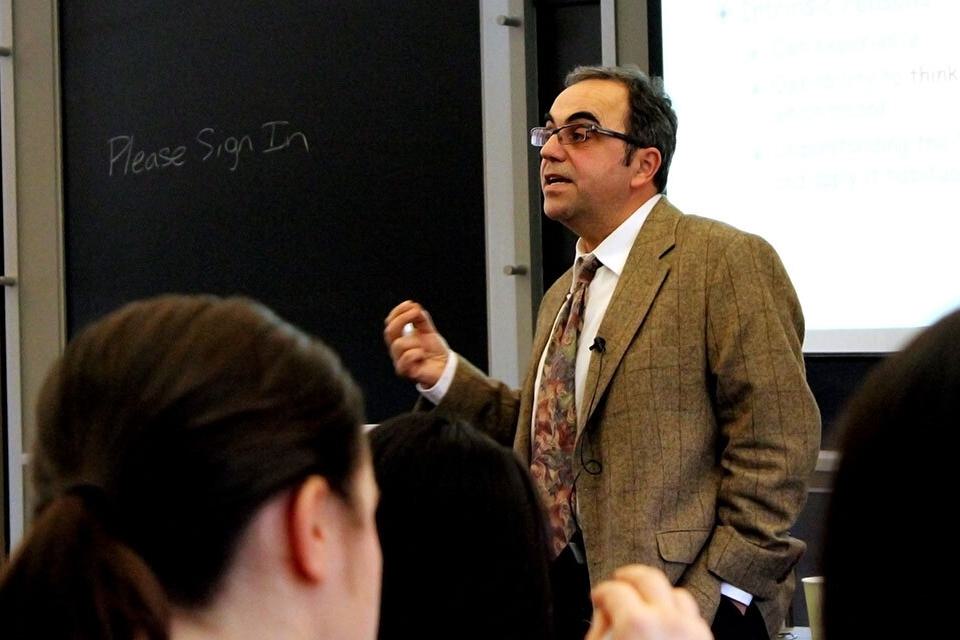Faced with an unsettlingly large volume of news each day, college students try to digest information from several channels, including conversations with friends and professors, social media, online newspapers, and news feeds, according to a newly released report, How Students Engage with the News, from the nonprofit research institute Project Literacy Information.
Almost 6,000 students from 11 colleges and universities across the United States, including Wellesley, participated in the study, which examined their news consumption habits. More than two-thirds of the respondents said the sheer amount of news was overwhelming; half agreed it was difficult to discern the most important news stories on a given day.
P. Takis Metaxas, professor of computer science at Wellesley and faculty director for the Madeleine Korbel Albright Institute for Global Affairs, was a co-researcher for the study.
“You hear about how ‘news-less’ today’s students are all the time,” said Metaxas. “We found that students are actually quite engaged with the news, they are informed and interested. They rely on peer conversations more often than they rely on social media to be informed—but not by much.”
Metaxas also pointed to the role of college faculty in informing students. “Their professors are also a major source of news information and discussion, and faculty needs to be aware of that,” he said. “And students are cautious about how misinformation finds them, not the other way around.”
He expressed concern about news from social media sources, such as Instagram and Snapchat. “These channels worry me because they can be misleading but fashionable,” he said. “Willing or not, some social media companies are effectively news editors, and they need to be responsible in this role.”
Metaxas said it is now more important than ever for college students to be able to process reams of news information. “Students tell us that, for them, news is fast, visual, social,” he said. “And news volume is intimidating to them, too. At the same time, they realize that being able to follow and understand news is essential to our democracy, to our civic duties, to our role as citizens.”
The yearlong study was commissioned by the John S. and James L. Knight Foundation and the Association of College and Research Libraries (ACRL), the largest division of the American Library Association.
Photo: Takis Metaxas, professor of Computer Science, speaks at a recent Albright Institute lecture.
